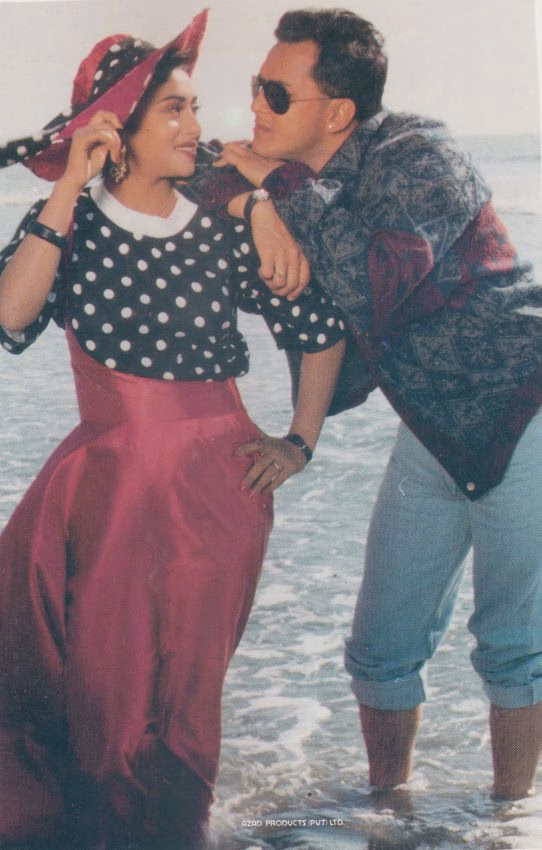For a long time, romance in Bengali cinema had been overly dramatic, conventional, and somewhat artificial. But in the early ’90s, Salman Shah brought a fresh breeze to the screen. The love in his films was entirely different, sometimes deeply emotional, sometimes rebellious.
After the release of his first film, ‘Keyamat Theke Keyamat’, audiences immediately realized that a new language of portraying love had arrived. The chemistry between Salman and Moushumi in that film remains memorable even today. The songs, dialogues, and even Salman’s on-screen presence made the love story believable.
In subsequent films like ‘Ananda Ashru’, ‘Prem Juddho’, ‘Sujon Sokhi’, and ‘Tumi Amar’, he portrayed love in distinct ways. His romances with Shabnur and other leading ladies were extraordinary. In his acting, love was not merely the emotions between the hero and heroine—it was also about social resistance, winning over families, or fighting to establish one’s own identity.
The youth of the ’90s memorized his dialogues. Songs from his films were written in love letters. For couples holding hands in cinema halls, Salman was an inspiration. His gestures, sweet smile, and expressive eyes all radiated the pulse of love.
In his films, love was more than entertainment; it was a form of liberation. In a social reality dominated by family pressure, traditions, and superstition, his characters often triumphed in love through quiet rebellion. It was this rebellious love that set him apart.
Even today, songs from his films are played at weddings, and young people hum his dialogues. Years after his death, whenever a film about love comes to mind, Salman Shah’s name is the first that appears.
Salman Shah proved that a love story can stir the audience’s heart—if the hero is heartfelt, realistic, and brave. The love in his films was a revolution of the ’90s, an unparalleled chapter in the history of Bengali cinema.


